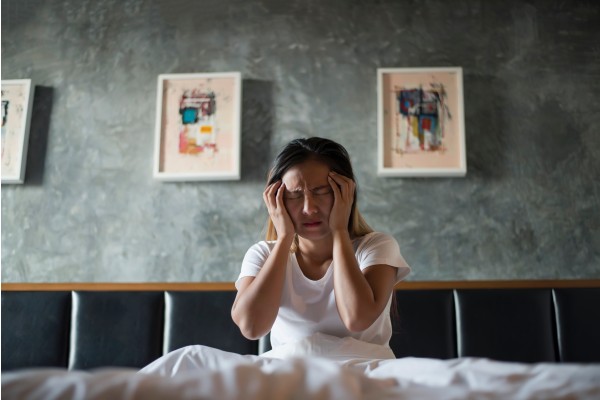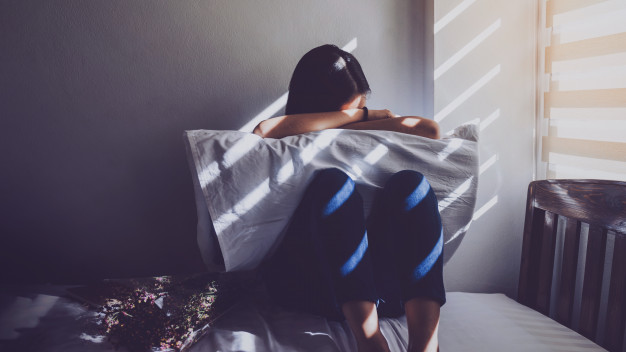What you need to know about Sleep disorder
- What are sleep disorders?
- Types
- Symptoms
- Causes
- Treatment
- Sleep Deprivation
- Psychological risks
- Prevention
Sleep disorders is a result of a group of conditions that affect the ability to sleep well on a regular basis. Most people experience sleeping problems due to stress, hectic schedules, and various other factors. The problem starts when these issues begin to occur frequently indicating a sleeping disorder.
People might have a difficult time falling asleep depending on the type of sleep disorder, and may be sluggish. The lack of sleep can drain out energy, affect mood, concentration, and overall health. In some cases, sleep disorders are a result of other medical or mental health conditions. These sleeping problems may normalize once treatment is obtained for the root cause.
It’s important to receive therapy right away if you think you might have a sleep disorder. If not treated, the negative effects of sleep disorders can lead to further health problems. They can have an adverse impact on your performance at work, lead to strenuous relationships, and affect your ability to perform day to day activities.

- Obstructive Sleep Apnea
- Narcolepsy
- Restless leg syndrome
- Insomnia
- Circadian rhythm disorders
To diagnose these conditions, your therapist may order a sleep study. If you’re diagnosed with a sleep disorder, you may be given medication or a device to keep your airway open at night to get a better night’s sleep on a regular basis.
Symptoms of sleep disorders vary depending on the severity and type. They differ when sleep disorders are a result of another condition.
However, general symptoms of sleep disorders include:
- Difficulty falling or staying asleep
- Daytime fatigue
- Taking frequent naps during the day
- Unusual breathing patterns
- Unusual urges to move when falling asleep
- Unusual movement or other experiences while asleep
- Unintentional changes to your sleep/wake schedule
- Irritability or anxiety
- Impaired performance at work or school
- Lack of concentration
- Depression
- Weight gain

Many conditions, diseases, and disorders are responsible for sleep disturbances. Allergies and respiratory problems. Allergies, colds, and upper respiratory infections make it difficult to breathe at night.
Having difficulty breathing through your nose can also cause sleeping difficulties.
- Frequent urination: Frequent urination also known as Nocturia disrupts your sleep by causing you to wake up during the night. Hormonal imbalances and diseases of the urinary tract contribute to nocturia.
-
Chronic pain: Constant pain makes it increasingly difficult to fall asleep. This might even wake you up after falling asleep. Few common causes of chronic pain are arthritis, chronic fatigue syndrome, fibromyalgia, inflammatory bowel disease, persistent headaches, continuous lower back pain.
In a few cases it is seen that chronic pain may be exacerbated by sleep disorders. Doctors believe the development of fibromyalgia may be linked to sleeping problems. - Stress and anxiety: Stress and anxiety impact your sleep quality. This results in nightmares, sleep talking, or sleepwalking.
The doctor will conduct a physical exam and study about your symptoms and medical history.
Treatment for sleep disorders vary depending on the type and underlying cause. It is a combination of medical treatments and lifestyle changes.
Medical treatments
Medical treatment for sleep discrepancies may include sleeping pills, melatonin supplements, allergy or cold medication, medications for any underlying health issues, breathing device for sleep apnea, a dental guard (usually for teeth grinding).
Making Lifestyle changes
- You may want to consider incorporating more proteins in your diet, and reduce sugar intake
- Reduce stress levels and anxiety by exercising and doing physical workouts
- Adhering to a fixed sleeping schedule
- Drinking less water before bedtime
- Limited consumption of caffeine, especially in the late afternoon or evening
- Decreasing tobacco and alcohol use
- Eating smaller low carbohydrate meals before bedtime
- Maintaining a healthy diet based on your doctor’s recommendations
- Having a fixed sleep schedule can tremendously improve your sleep quality
The effects of sleep disorders can be so severe that you will likely want immediate relief. Long-term cases can take more time to resolve.
But if you follow your treatment plan and have a clear communication with your therapist, you can have a good progress.
If you’ve spent a night tossing and turning, you know you’ll wake up feeling tired, cranky, and out of sorts the following day. Not getting a minimum 7 to 9 hours of peaceful sleep makes you feel tired and grumpy.
The long lasting effects of sleep deprivation are real. It affects your mental abilities and puts your physical health at risk.
Sleep deprivation is caused by absence of sleep or good quality of sleep. Missing out on less than 7 hours of sleep on a regular basis leads to health consequences that affect your entire body. This is caused by an underlying sleep disorder.
Your body needs good rest to function at its best. While asleep, your body heals itself and restores its chemical balance and your brain forges new thought connections and helps memory retention. Lack of sleep dramatically lowers your quality of life.
Noticeable signs of sleep deprivation include:
- Excessive sleepiness
- Frequent yawning
- Irritability
- Daytime fatigue
Caffeine can make things worse by making it harder to fall asleep at night. This, in turn, may lead to night-time insomnia followed by daytime caffeine consumption to combat the tiredness caused by the lost hours of shut-eye.
You may find it challenging to concentrate or learn new things. The signals your body sends may be delayed, affecting your coordination and increasing your risk for accidents.
Sleep deprivation has an impact on your mental abilities and emotional state. You tend to get impatient or prone to mood swings. It can compromise decision-making abilities.
If sleep deprivation continues you could start experiencing hallucinations. A lack of quality sleep can also trigger mania in people who have bipolar mood disorder.
- Impulsive behavior
- Anxiety
- Depression
- Paranoia
- Suicidal thoughts
You might end up experiencing microsleep during the day for a few to several seconds without realizing it. Microsleep is beyond your control and can prove to be fatal if you’re driving. You can be prone to injuries if you operate heavy machinery at work and have a microsleep episode.
Long-term sleep deprivation increases your risk for chronic conditions, such as diabetes mellitus and heart disease. Sleep deprivation can also make existing respiratory conditions worse, such as chronic lung illness.
Along with binge eating and not exercising, sleep deprivation is another risk factor for becoming overweight and obese. Sleep has an effect on the levels of two hormones, leptin and ghrelin, which control feelings of hunger and fullness.
A lack of sleep can also make you feel lethargic. Over a period of time, reduced physical activity can make you gain weight because you’re not burning enough calories and not building muscle mass.
Sleep deprivation causes your body to release less insulin post eating. Insulin helps in reducing your blood sugar (glucose) level. Sleep deprivation lowers the body’s tolerance for glucose and is associated with insulin resistance. Such disruptions can lead to diabetes mellitus and obesity.
People who don’t get enough sleep are more likely to get cardiovascular disease. An analysis linked insomnia to an increased risk of heart attack and stroke.
The basic form of sleep deprivation treatment is getting an adequate amount of sleep, typically 7 to 9 hours each night.
If you are sleep deprived for several weeks or longer you may need help from your therapist who can diagnose and treat a possible sleep disorder. Sleep disorders make it difficult to get quality sleep at night.
The best way to prevent sleep deprivation is to ensure you get adequate sleep.
Different ways you can get back on track with a healthy sleep schedule include:
- Limiting daytime naps (or avoiding them altogether)
- Avoid consumption of caffeine past noon or at least a few hours prior to bedtime
- Waking up at the same fixed time every morning
- Spend an hour before sleeping doing relaxing activities, such as reading, meditating, or taking a bath
- Avoiding eating heavy meals within a few hours before bedtime
- Refraining from using electronics right before bedtime
- Reducing alcohol intake
If you continue to have these symptoms talk to your therapist. They can check for underlying health conditions that might be getting in the way of your sleep schedule.